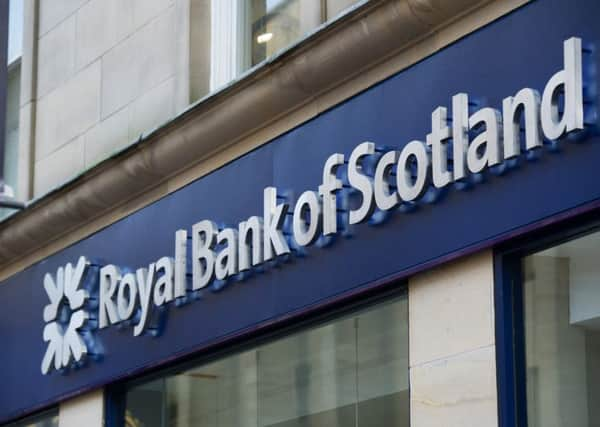RBS fails Bank of England stress test
This article contains affiliate links. We may earn a small commission on items purchased through this article, but that does not affect our editorial judgement.


The Edinburgh-based lender, which is 72 per cent owned by the taxpayer, emerged as the worst performer in the stress test and has drawn up a plan overnight to bolster its resilience in case of a financial crisis.
RBS chief financial officer Ewen Stevenson said: “We are committed to creating a stronger, simpler and safer bank for our customers and shareholders.
Advertisement
Hide AdAdvertisement
Hide Ad“We have taken further important steps in 2016 to enhance our capital strength, but we recognise that we have more to do to restore the bank’s stress resilience including resolving outstanding legacy issues.”
RBS, led by chief executive Ross McEwan, said it has agreed a revised capital plan with the Bank of England’s Prudential Regulation Authority (PRA) “in light of the various challenges and uncertainties facing both the bank and the wider economy”, although it is not set to tap markets for extra finance.
Those steps include further decreases in its cost base, the sale of non-core loan portfolios and a reduction in assets held by its commercial banking arm.
The group added: “RBS expects its revised capital plan to address the shortfall identified in today’s stress test results. However, additional management actions may be required until RBS’s balance sheet is sufficiently resilient to stressed scenarios.”
Mike van Dulken, head of research at Accendo Markets, said: “The UK’s weakest bank – RBS – is still just that, almost a decade after the financial crisis began and the UK taxpayer had to bail it out for £45bn. Outstanding legal challenges remain a real problem, especially in the US.”
Barclays and Asian-focused player Standard Chartered also struggled in the test, but the Bank of England said their existing plans mean they do not have to take further action.
The most severe annual stress test so far gauged the resilience of seven UK lending giants – Barclays, HSBC, Lloyds Banking Group, Nationwide Building Society, RBS, Santander and Standard Chartered – against a global economic crisis and crashing house prices.
The Bank’s financial policy committee said in light of the findings and action taken by RBS, “the banking system is in aggregate capitalised to support the real economy in a severe, broad and synchronised stress scenario”.
Advertisement
Hide AdAdvertisement
Hide AdResults of the Bank’s annual test came as it also published its financial stability report, which warned that the outlook “remains challenging” for the UK and is dependent on an orderly exit from the European Union. It said that, as a result of the 23 June Brexit referendum, the likelihood of risks to financial stability “remains elevated”.
Its stress test of the banking system – its third so far – saw each lender assessed on whether they would be able to withstand a synchronised UK and global crisis on a greater scale than in 2008.
The five-year doomsday scenario included oil prices slumping to $20 a barrel, house prices tanking by 31 per cent, rising UK unemployment and a 4.3 per cent drop in Britain’s economic output, as well as a worldwide recession.
The Bank also gave details on its 2017 test of the banking sector, which will see it introduce a second test and will cover a seven-year period, looking at “severe headwinds” that could put profits under pressure.
Britain’s exit from the EU could also see banks forced to adapt as they face lower interest rates for longer and uncertainty over Brexit negotiations.
The central bank said: “Changes to business models as the UK withdraws from the EU could have implications for resilience.”
Governor Mark Carney said that since the plans put in place by RBS, Barclays and Standard Chartered to address weaknesses, UK lenders would be able to “withstand what is a very severe shock”.
